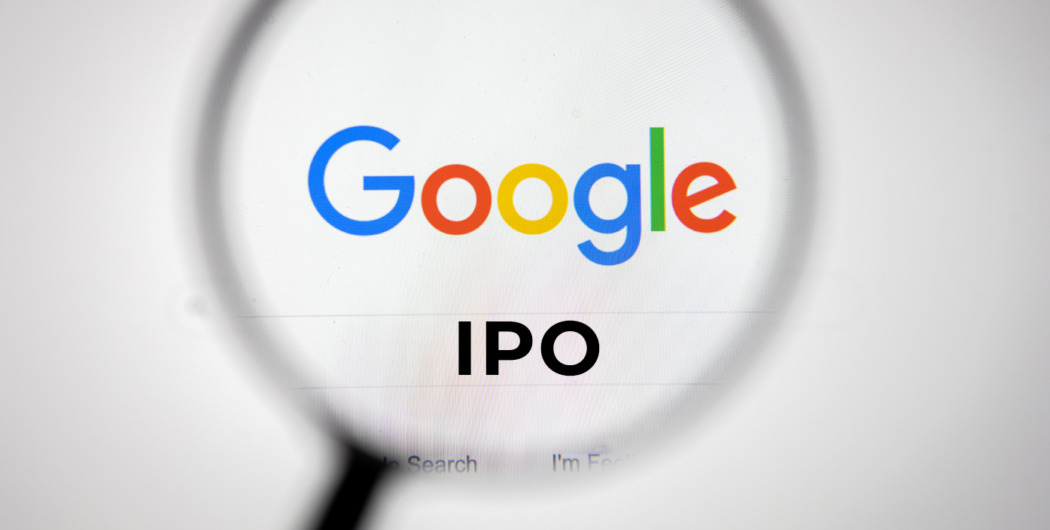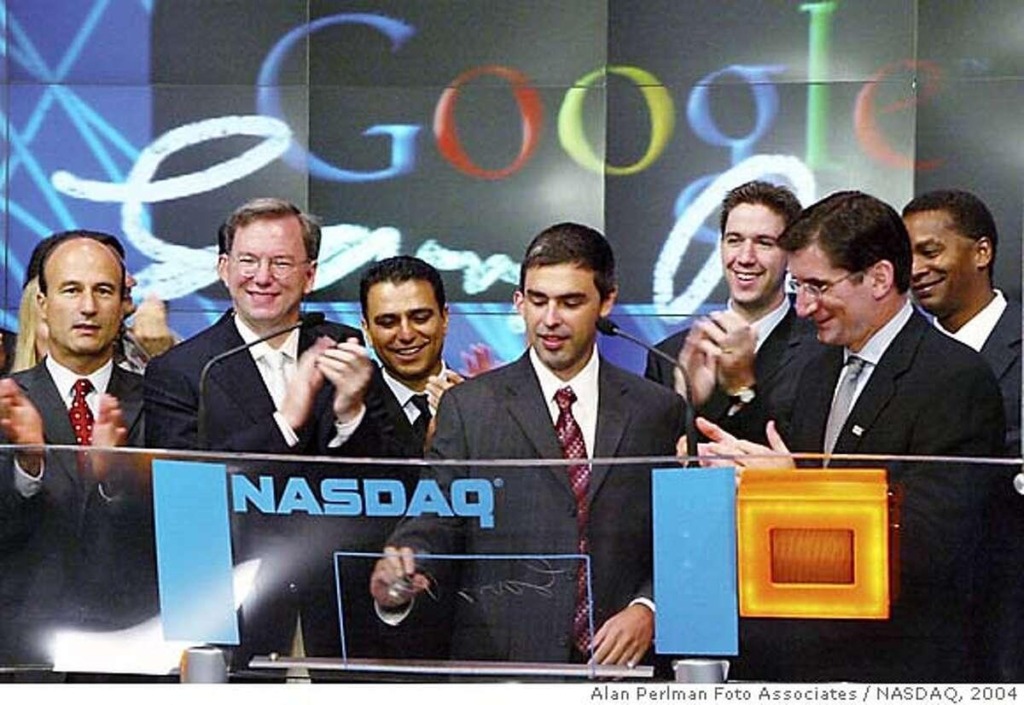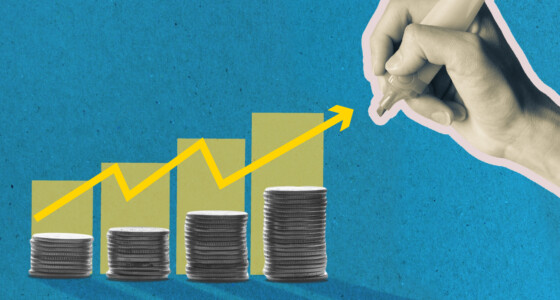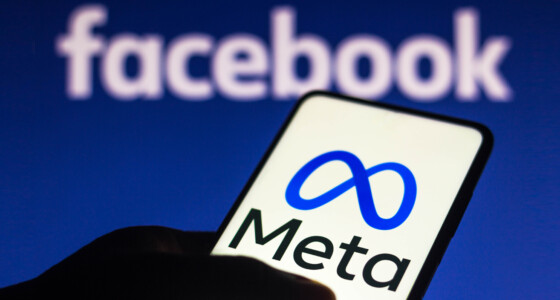

In 1996, Larry Page and Sergey Brin launched a search engine called BackRub. In 1998, the engine was renamed Google, which is a misspelling of the word “googol” – the number one followed by a hundred zeroes (10100). Fast forward six years to Google’s IPO in 2004, when the company went public.
But this quick rundown barely covers what went down before and during this legendary IPO. Let’s look at six interesting facts surrounding Google’s Wall Street debut.
1. The IPO was long-awaited

When did Google launch? 1998. When did Google IPO take place? 2004.
So, the company had six years of steady growth before filing. By the first half of 2004, its revenue had surpassed $1.3 billion, up by almost $560 million from the year prior. Everyone was interested in Google, but Google was in no rush.
Before revealing IPO plans, the founders believed that the company had adequate cash to fund the business and had generated additional cash through operations. There was no immediate need for additional funding.
When Google was preparing to convert to publicly-traded status, some speculated about a Microsoft-Google link. With theories ranging from a kind of merger to an outright takeover, nothing of the kind came about.
2. Many in Silicon Valley were bearish
Even the biggest proponents of initial public offerings of technology stocks were overwhelmingly bearish on Google’s offering. Stephen Wozniak, who kept up with the computing world by funding various business ventures after leaving Apple, said, “I’m not buying.”
The problem wasn’t only about Google— the lousy market also played its part. Tech stocks were stalling out, and the Nasdaq was sitting at a relatively low point. Just before Google, several tech IPOs had been postponed or canceled. This didn’t bring much hope to tech stock investors or the issuing companies.
3. The journey to Wall Street was rocky
Larry Page and Sergey Brin, Google’s CEO and president, did not make it easy. They kept their promise of keeping Google an unconventional company, opted out of getting financial forecasts each quarter, and took on risky long-term projects at the expense of short-term earnings.
What’s more, Page and Brin would show up for investor presentations dressed less than casual. When asked questions about the IPO, they gave off-the-cuff remarks that didn’t provide much. Their Playboy interview also revealed they hadn’t registered their shares properly, which was a direct breach of pre-IPO rules.

4. Dutch auction was a controversial choice
In the Google IPO letter, the founders announced the unorthodox method of going public— the Dutch auction. This type of sale allows an investor to put in a bid without knowing what others have bid. Both institutions and individuals could participate. When all the bids were placed, the company worked down the list of bidders until the total desired number of shares was sold.
In theory, Google’s Dutch auction was meant to reduce the first-day price spread. But because the company’s valuation wasn’t taken into consideration, it resulted in an underpriced offering.
5. The IPO made most employees millionaires
Full-time employees at Google are paid in equity in the form of Restricted Stock Units, which turn into stock shares. When the company went public, roughly 2,500 employees were given these. The IPO made the top talent millionaires, and even the company’s head chef and masseuse got returns.
Many of the new paper millionaires couldn’t speak to the press because of a required “quiet period.” But it has been revealed that just three years after the IPO, about 1,000 people each held over $5 million worth of Google shares.
6. Google’s IPO was both contentious and successful
The rising tech giant did hit its earlier target range of $108 to $135— the IPO ended up being priced at $85. The underwhelming results attracted a lot of press at the time and a lot of criticism.
Since then, the attitude towards Google’s IPO shifted to “what’s really important is the price at the end.” Those who bought early have been rewarded. Google has never dropped below the IPO price and has been a growth stock ever since.
Even before Google’s listing, Wall Street thought leaving pricing up to the masses was a bad idea. But nothing could stop the rising market leader at the time. By the end of the year, Google’s stock had doubled. By 2022, the stock price has risen by 2,700%. With Google’s future plans and acquisition opportunities, its story might get even better—and more rewarding for early investors.








